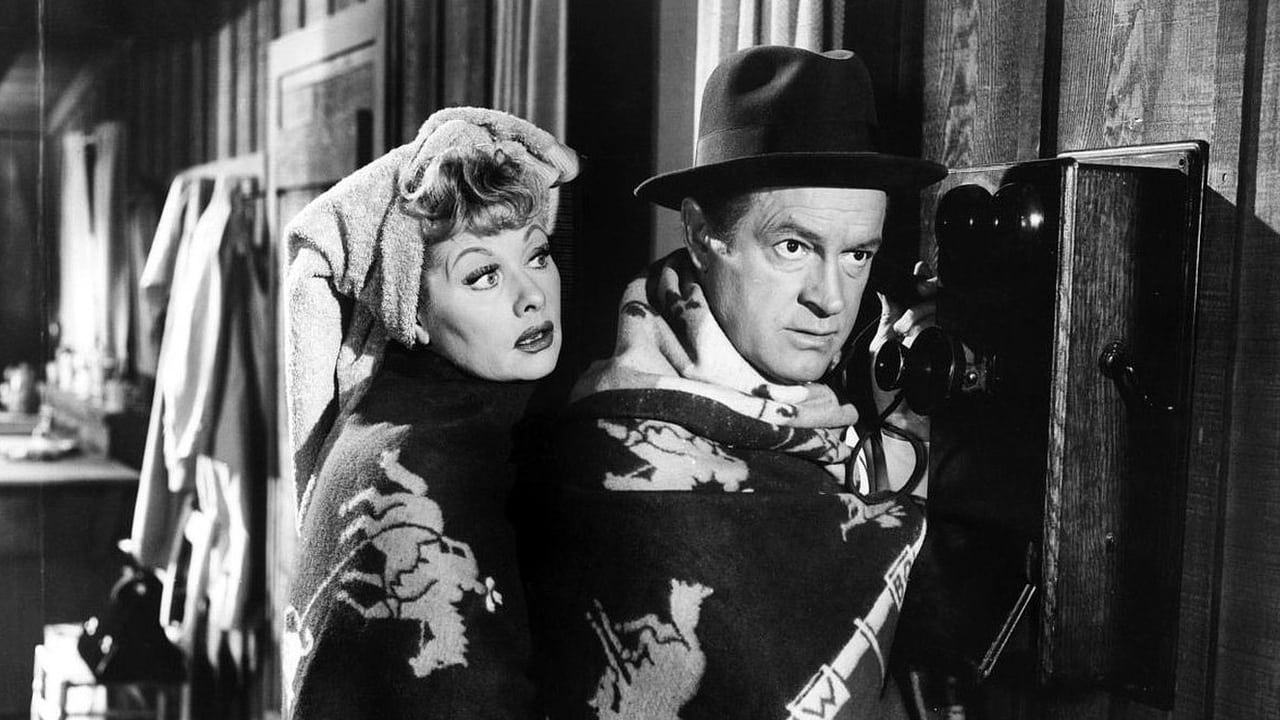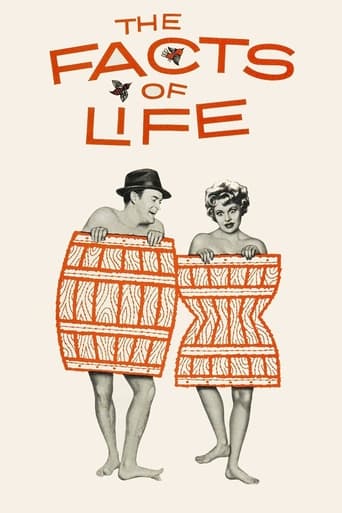NekoHomey
Purely Joyful Movie!
Kailansorac
Clever, believable, and super fun to watch. It totally has replay value.
Ava-Grace Willis
Story: It's very simple but honestly that is fine.
Francene Odetta
It's simply great fun, a winsome film and an occasionally over-the-top luxury fantasy that never flags.
James Hitchcock
Do not adultery commit, Advantage seldom comes of it.Thus wrote the 19th century poet A H Clough in "The Latest Decalogue", his satirical version of the Ten Commandments. Clough may have meant these words satirically, but they sum up fairly accurately the way in which his literary contemporaries treated adultery in their works. There was an unwritten law to the effect that writers could deal with the subject on condition that they made it clear that advantage seldom comes of it. Thus Flaubert made Emma Bovary poison herself and Tolstoy had Anna Karenina jump under a train, as a salutary warning to their readers that they disregarded their marriage vows at their peril. This moralistic attitude to marital infidelity survived well into the twentieth century, and the advent of the Production Code meant that it found a new home in the motion picture industry. Indeed, it seemed to survive there long after it had gone into a decline in the literary world. By the 1950s, however, even Hollywood scriptwriters were starting to take a more liberal attitude towards the Seventh Commandment, the Marilyn Monroe vehicle "The Seven Year Itch" being a case in point. Admittedly, nobody actually commits adultery in that movie, but the main male character certainly considers doing so, and the subject is treated in a generally light-hearted manner, not as the occasion for some heavy-handed moralising. "The Facts of Life" was made in the opening year of the following decade, and like a number of films from the period such as "Where the Boys Are", also from 1960, it is very much of its period, marked by a coyly suggestive attitude to sex which would have been too suggestive for 1940 or 1950 and too coy for 1970 or 1980. Even the title derives from a sexual euphemism; "Do your children know the facts of life?" is a way of asking "Do your children know the facts of human sexuality?" Whereas "Where the Boys Are" dealt with love and sex among young single people, this film is a comedy of love and adultery (or at least attempted adultery) among the middle-aged middle classes. Three California couples, the Gilberts, Masons, and Weavers, have a long-standing agreement to go away on holiday together each year. One year fifty-something Larry Gilbert and forty-something Kitty Weaver unexpectedly find themselves alone in Acapulco after their respective spouses are unable to travel with them and the Masons are taken ill. Even more unexpectedly, Larry and Kitty, who have previously not cared for one another very much, fall in love. The rest of the film chronicles their attempts to consummate their relationship. As in "The Seven Year Itch", nobody actually ends up in bed with anyone other than their lawful partner, but in Larry and Kitty's case that's not for want of trying, and the film certainly does not take a moralistic attitude towards their antics. As I said, the film would have started to look a bit old-fashioned even by 1970, and today, more than fifty years after it was made, its rather twee attitude to sex looks hopelessly antiquated. The plot is horribly artificial and unrealistic. The scriptwriters try to exploit that old romantic comedy chestnut- old even in 1960- about two people who start off by disliking each other and end up madly in love, but here it just does not work. In most films which rely on this plot device the initial dislike is something momentary, based upon a mistaken first impression, which is later corrected, allowing love to develop gradually. Here, however, Larry and Kitty go from hating to loving one another almost in the blink of an eyelid. Moreover, as they appear to have known each other for a considerable length of time, their mutual dislike was presumably based upon something more than a temporary misunderstanding. Lucille Ball, in her late forties, was still attractive enough to make a convincing romantic comedy heroine. (She was actually nominated for a Golden Globe for "Best Actress – Comedy"). Bob Hope, however, comes across as a bit dull and lacking in charisma, and never makes us understand what Kitty sees in Larry. Hope was always better as a comedian than as a comic actor, and does not really shine in a film like this one which depends more upon comic situations than upon comic dialogue. The film as a whole was reasonably well received when it came out in 1960, and was nominated for five Academy Awards, but it has dated badly, even in comparison with other comedies of the era. Compared, say, with something like "The Apartment" (also from 1960, and which also takes illicit sexual relationships as its theme), "The Facts of Life" comes across like an over-extended episode from some long-forgotten television sitcom. 4/10
misspaddylee
Directed by Melvin Frank and written by Frank with Norman Panama, "The Facts of Life" is an adult love story that will surprise you. Frank & Panama are Bob Hope experts, multiple Oscar nominees and the creators of such classic comedies as "The Court Jester" and "Mr. Blandings Builds His Dream House".Kitty Weaver and Larry Gilbert are two perfectly nice suburbanites. If Kitty's husband (Don DeFore) seems a little preoccupied with work and his gambling habit, and Larry's wife (Ruth Hussey) a little too caught up with the kids - well, that's life. They have no thought of straying. They certainly have no thought of straying toward each other. However, Fate (in that way of hers) forces these two perfectly nice people to spend time together. Kitty discovers that "the jerk who tells the lousy jokes at the country club" is a genuinely warm and funny fellow. Larry sees a softer side to that stuck up Kitty. Love blossoms with the added complications of vows and conscience.How Larry and Kitty deal with their feelings, their need to be together and the realities of their lives is played out in a frank, touching and very funny manner. It is wonderful to see two actors who happen to be bona fide comic geniuses working together in such perfect sympathy. The humour of character and situation also involves some gut grabbing slapstick, and some quiet moments that will make you smile or sigh a sentimental sigh for two perfectly nice people.
Isaac5855
One of their later screen teamings, THE FACTS OF LIFE was a 1960 comedy, rather adult for its time, where Bob and Lucy play two friends, married to others, who usually participate in a group vacation together and through some freak circumstances , end up on the vacation alone this year and grow so close they actually drift into an affair and consider leaving their spouses. I have to admit that this movie was surprising to me when I first saw it a few months ago, so I'm sure it raised a few eyebrows in the 1960's...infidelity was most likely a bold subject for a movie comedy and I doubt if it was something Bob or Lucy had done prior to this. but for this day and age, this was a very adult movie comedy that probably didn't do the business it deserved in 1960 because of its "contorversial" storyline. Though it would hardly be considered controversial today, this film was probably quite the departure for its stars and as a curio of cinema history, it is definitely worth a look.
nycritic
Two people meet, fall in love, but are married to other people. Formula, formula, formula. It has made memorable movies and flat-out unbearable ones. This one should have been closer to a drama, but due to circumstance, it was made into a comedy -- and a slapstick one at that. Bringing in Lucille Ball and Bob Hope, already icons of television who'd worked together in her hit show, was a good move for both. It gave people a chance to see Hope in a real comedy instead of the ROAD TO (insert city name here) fare. Lucille Ball also benefited; her screen appearances were sporadic once she'd ventured into television, but the ones she chose were better than average -- nothing award-winning, but good material. THE FACTS OF LIFE (not to be confused with the TV show) is an above-average story of crossed lovers, sanitized to squeaky-clean perfection by its sitcom presentation, which has Ruth Hussey's last on-screen performance, and is fun to watch whenever it's on TCM.

